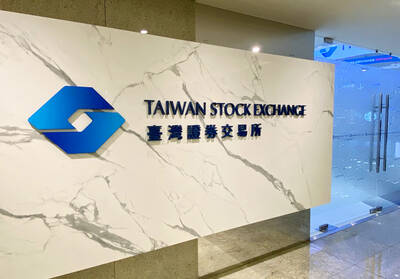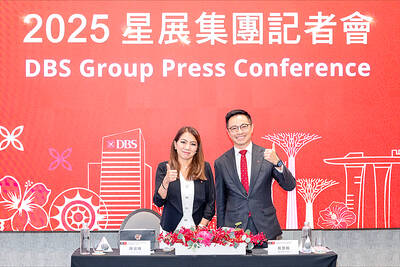TaiGen Biopharmaceuticals Holdings Ltd (太景醫藥研發控股) turned a profit of NT$1.1 billion (US$39.33 million) last quarter following NT$1.29 billion in payments from China’s Zhejiang Medicine Co (浙江醫藥集團) after transferring the patent of an antibacterial drug, the company said on Wednesday.
Following a first-quarter net loss of NT$43.65 million, TaiGen reported net profit of NT$1.05 billion for the first half of this year, with earnings per share of NT$1.47, compared with losses per share of NT$0.24 a year earlier, the company said in a statement.
The Taipei Exchange-listed company has collaborated with Zhejiang Medicine since 2012, authorizing the Chinese firm to manufacture Taigenxyn (nemonoxacin) capsules and sell them for a royalty in China.
In the spring, the two firms revised their collaboration: TaiGen sold the Chinese patent for Taigenxyn to Zhejiang Medicine, which gave TaiGen one-time payments, the company told the Taipei Times by telephone.
The two firms had planned to jointly apply for marketing approval for Taigenxyn administered by intravenous infusion, but Chinese regulations only allow one company to apply, it said.
“After a long discussion, we decided to sell our patent to Zhejiang Medicine so that the Chinese firm could apply for marketing approval,” TaiGen said.
TaiGen would use the NT$1.29 billion in payments to develop a new antibiotic for a drug-resistant bacterium, it said.

Taiwan Semiconductor Manufacturing Co (TSMC, 台積電) secured a record 70.2 percent share of the global foundry business in the second quarter, up from 67.6 percent the previous quarter, and continued widening its lead over second-placed Samsung Electronics Co, TrendForce Corp (集邦科技) said on Monday. TSMC posted US$30.24 billion in sales in the April-to-June period, up 18.5 percent from the previous quarter, driven by major smartphone customers entering their ramp-up cycle and robust demand for artificial intelligence chips, laptops and PCs, which boosted wafer shipments and average selling prices, TrendForce said in a report. Samsung’s sales also grew in the second quarter, up

LIMITED IMPACT: Investor confidence was likely sustained by its relatively small exposure to the Chinese market, as only less advanced chips are made in Nanjing Taiwan Semiconductor Manufacturing Co (TSMC, 台積電) saw its stock price close steady yesterday in a sign that the loss of the validated end user (VEU) status for its Nanjing, China, fab should have a mild impact on the world’s biggest contract chipmaker financially and technologically. Media reports about the waiver loss sent TSMC down 1.29 percent during the early trading session yesterday, but the stock soon regained strength and ended at NT$1,160, unchanged from Tuesday. Investors’ confidence in TSMC was likely built on its relatively small exposure to the Chinese market, as Chinese customers contributed about 9 percent to TSMC’s revenue last

Taiwan and Japan will kick off a series of cross border listings of exchange-traded funds (ETFs) this month, a milestone for the internationalization of the local ETF market, the Taiwan Stock Exchange (TWSE) said Wednesday. In a statement, the TWSE said the cross border ETF listings between Taiwan and Japan are expected to boost the local capital market’s visibility internationally and serve as a key for Taiwan becoming an asset management hub in the region. An ETF, a pooled investment security that is traded like an individual stock, can be tracked from the price of a single stock to a large and

Despite global geopolitical uncertainties and macroeconomic volatility, DBS Bank Taiwan (星展台灣) yesterday reported that its first-half revenue rose 10 percent year-on-year to a record NT$16.5 billion (US$537.8 million), while net profit surged 65 percent to an unprecedented NT$4.4 billion. The nation’s largest foreign bank made the announcement on the second anniversary of its integration with Citibank Taiwan Ltd’s (花旗台灣) consumer banking business. “Taiwan is a key market for DBS. Over the years, we have consistently demonstrated our commitment to deepening our presence in Taiwan, not only via continued investment to support franchise growth, but also through a series of bolt-on acquisitions,” DBS